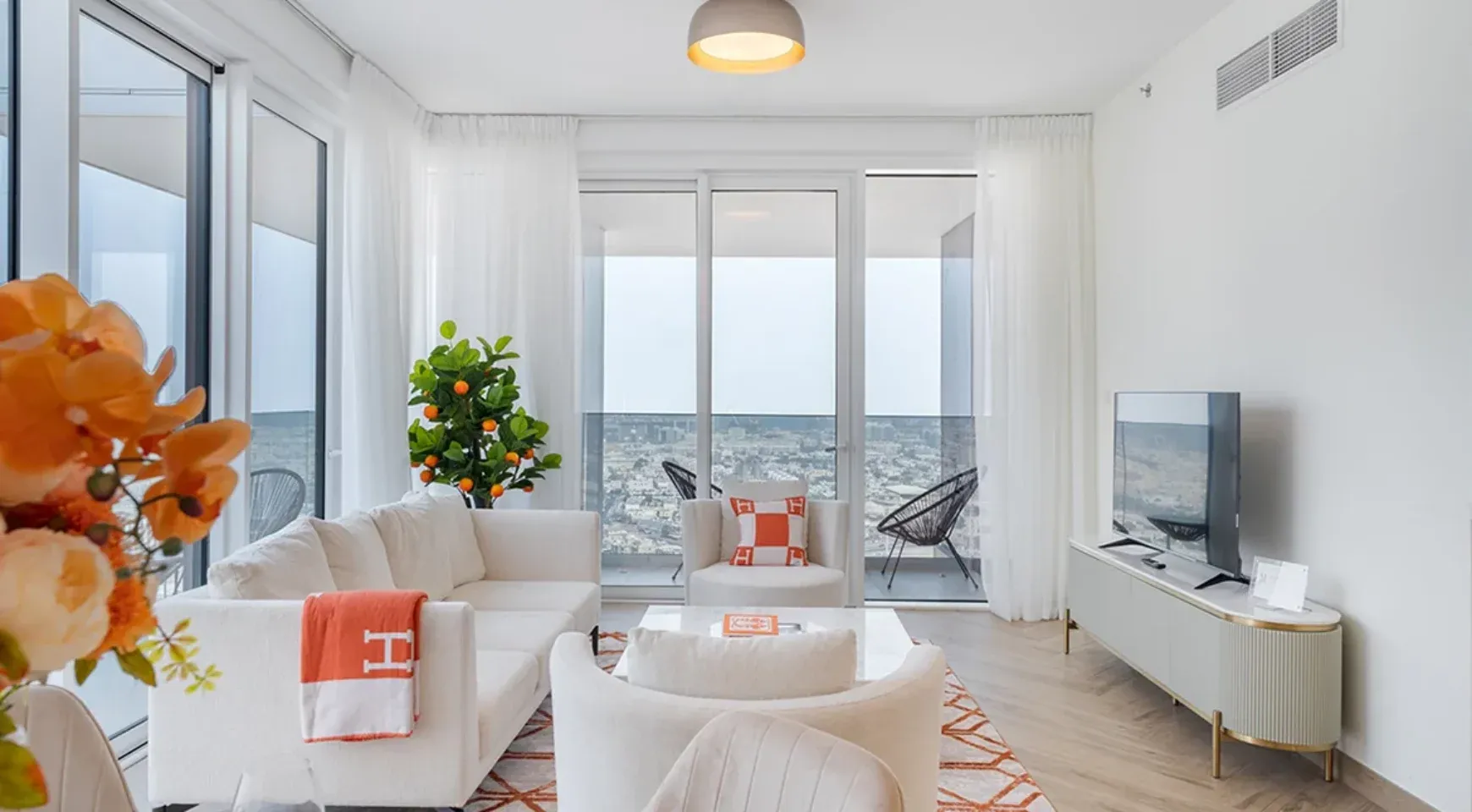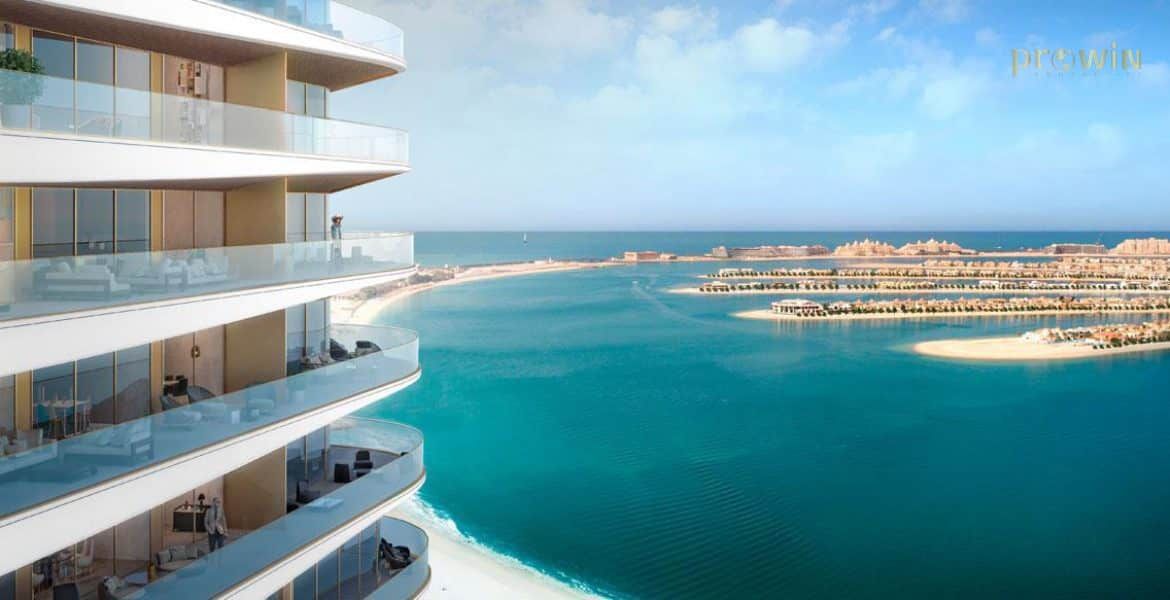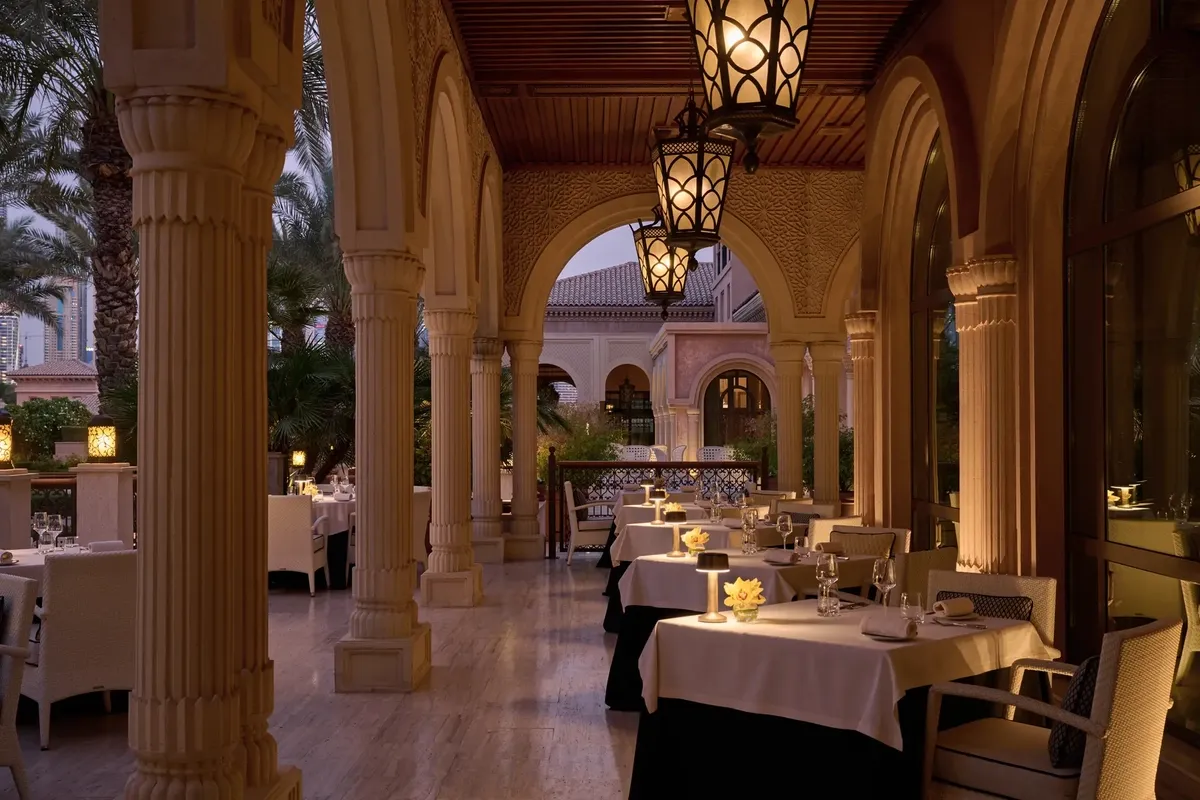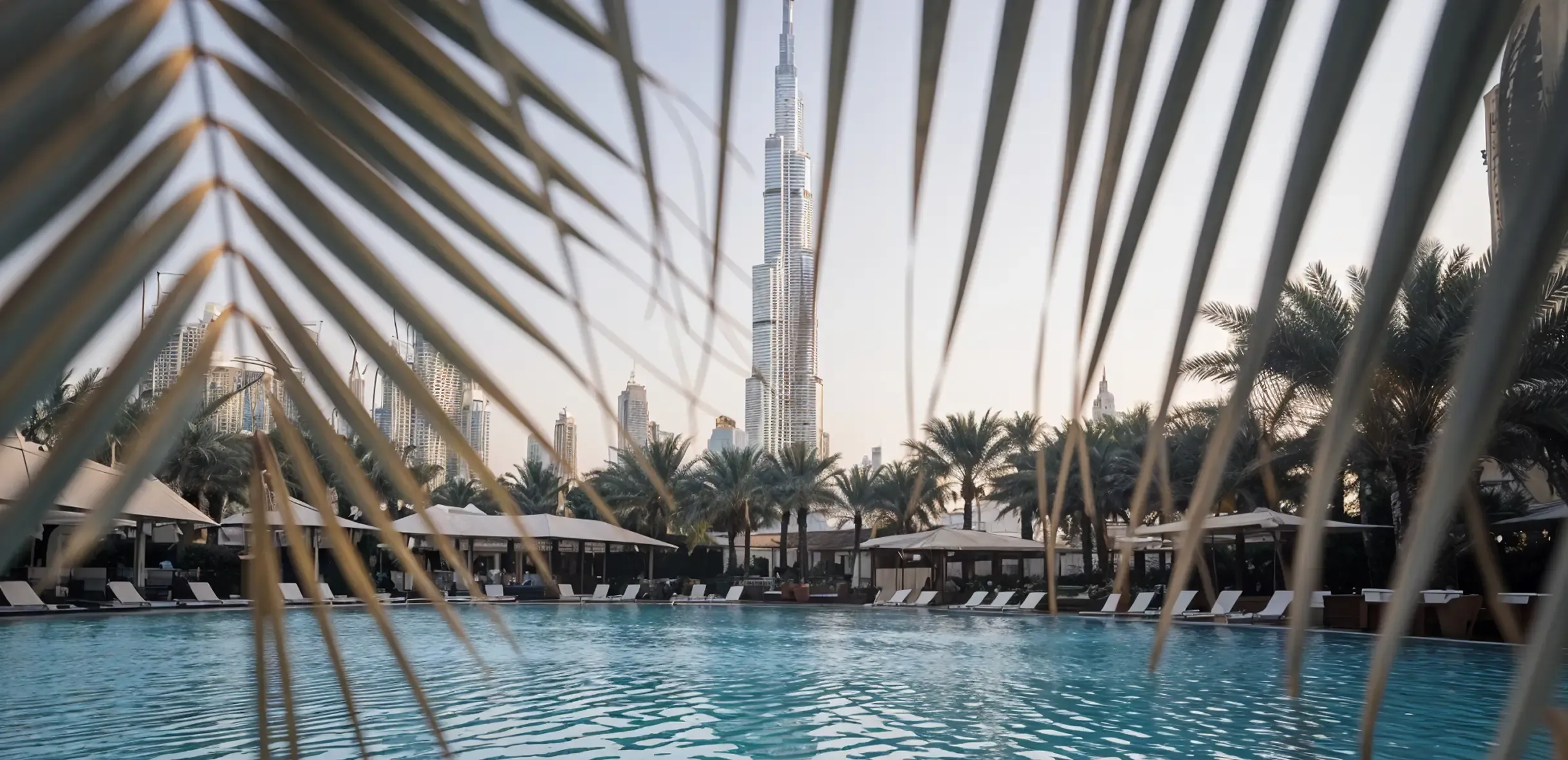A Comprehensive Guide to Purchasing Luxury Real Estate on Dubai’s Iconic Palm-Shaped Island
Welcome to your definitive 2025 guide to buying a home in Palm Jumeirah — one of the world’s most famous man-made islands and a symbol of luxury living in the heart of Dubai. Whether you're an investor looking for profitable property opportunities or an expat seeking a world-class lifestyle by the sea, Palm Jumeirah stands out as a premier destination. In this article, we’ll explore everything from the area’s real estate performance and layout, to property types and investment potential.
Introduction to Palm Jumeirah Real Estate
Recognized globally as the largest man-made island on Earth, Palm Jumeirah has become synonymous with prestige and architectural brilliance. Shaped like a palm tree and extending into the Arabian Gulf, this engineering marvel combines scenic beachfront living with ultra-modern infrastructure.
The island is home to a curated mix of luxury residences, five-star resorts, Michelin-starred restaurants, upscale retail, vibrant beach clubs, and wellness facilities — an unmatched blend of comfort, style, and exclusivity. Its distinct global appeal makes it one of Dubai’s most sought-after real estate destinations, particularly among high-net-worth individuals and international investors.
2025 Market Analysis and Performance
In 2025, Palm Jumeirah continues to show robust pricing trends, affirming its status as a premium property investment hub. According to the latest figures from DXBInteract:
- Median price per square foot: AED 3,086 (+15.3% YoY)
- Property median price: AED 4,950,000 (+21.4% YoY)
- Total transactions: 975 deals (-10.7% YoY)
These figures highlight a key insight for potential buyers — while transaction volume has dipped slightly, prices have significantly appreciated, underlining the area’s enduring desirability and investment resilience. With the average property fetching nearly AED 5 million, buying on the Palm signals both wealth and discerning taste. For those seeking long-term rental yield or capital appreciation, this uptick in pricing showcases the island’s strong upward trajectory in value.
Understanding Palm Jumeirah's Layout and Zones
Palm Jumeirah's unique shape isn't just iconic — it also defines how the island is structured into three distinct zones, each offering a different residential and lifestyle experience:
The Trunk
Considered the commercial and residential heart of the island, the Trunk hosts a variety of high-end apartment buildings, shopping destinations such as Nakheel Mall, and attractions like The View at The Palm, a 240-meter-high observation deck. It's also the entry point for the Palm Monorail, offering seamless connectivity from the mainland to key locations across the Palm.
The Fronds
These are the leaf-like branches extending from the Trunk, featuring private residential communities of luxurious waterfront villas. The fronds offer exclusivity and privacy, making them ideal for those seeking serene, sea-facing homes away from the bustle of the city.
The Crescent
Encircling the top of the Palm, the Crescent hosts some of Dubai’s most iconic resorts such as Atlantis, The Palm and Atlantis The Royal. High-end hotel apartments and resort living options dominate here, offering panoramic sea views and elite hospitality services.
The island’s well-planned infrastructure includes the monorail system and easy road access via tunnels and bridges, enhancing convenience for residents and visitors alike.
Property Types and Investment Options
Palm Jumeirah's real estate portfolio caters to a wide range of luxury tastes and investment strategies, featuring an impressive variety of property formats:
Luxury Villas on the Fronds
The ultimate in privacy and opulence, these beachfront villas feature private pools, direct sea access, and uninterrupted Gulf views. Ideal for end-users and ultra-high-net-worth investors, these homes offer both lifestyle value and long-term price appreciation.
High-End Apartments and Penthouses
Located primarily on the Trunk and parts of the Crescent, Palm’s upscale apartment towers include developments like Marina Residences, Shoreline Apartments, and the lavish units at ONE at Palm Jumeirah. Penthouses frequently come with rooftop terraces, private pools, and full-service amenities, making them ideal for buyers who prefer elevated urban living.
Hotel Apartments and Serviced Residences
For investors seeking hassle-free returns, branded hotel apartments within luxury resorts like Atlantis or the W Hotel offer strong rental yields and professional property management. These are especially popular among buyers who use the property seasonally and rent it the rest of the year.
Off-Plan vs. Ready Properties
Buyers can choose between ready-to-move-in homes and off-plan projects still under development. Ready properties offer immediate occupancy or rental income, while off-plan projects often present lower entry prices and flexible payment plans, suited for long-term investors.
Top-Selling Projects and Developments
According to DXBInteract, the most active developments in terms of transaction volumes in 2025 include high-end residences along the trunk and new branded offerings in the Crescent. These areas continue to attract strong demand from both domestic and international buyers.
Pricing Breakdown by Property Type
When considering purchasing a home in Palm Jumeirah, understanding the pricing structure across different property types helps define your investment potential. According to DXB Interact, as of 2025, the median property price sits at AED 4.95 million, representing a notable 21.4% year-on-year increase. Meanwhile, the median price per square foot has risen to AED 3,086, up 15.3% over the past year.
Price Analysis by Bedroom Count
In Palm Jumeirah, studios and 1-bedroom residences are often found in the trunk area's apartment buildings, while villas and larger units dominate the fronds and crescent. Smaller units like studios and 1-bedroom apartments typically fetch lower per-unit prices but have a higher price per sq.ft. compared to expansive units like 5- to 9-bedroom villas.
For example:
- Studios: Generally priced lower overall, but higher per square foot.
- 2- to 4-bedroom units: Found in both apartment towers and townhouses, and are popular among families and long-term investors.
- 5+ bedroom villas: Typically located on the fronds; these ultra-luxury properties command premium prices.
First Sale vs. Resale Market Dynamics
Buyers in Palm Jumeirah have access to both first-hand units from developers and pre-owned homes. First sales often come with post-handover payment plans and incentives, while resale transactions—representing homes resold within six months—may offer ready-to-move-in options. Data from DXB Interact allows users to track these transactions by bed count and project to identify trends in new vs. existing inventory pricing.
Seasonal Pricing Trends and Market Cycles
The property market in Dubai tends to heat up during fall and winter—prime seasons for overseas investment—while it cools slightly during summer. As a result, transactions in Palm Jumeirah dipped by 10.7% YTD in 2025, reflecting overall buying behavior rhythm. Foreign buyers looking to time the market may find better deals during the hotter months when demand softens slightly.
ROI Expectations by Property Type
The potential return on investment (ROI) largely depends on property type and location within the Palm:
- Apartments: Often yield higher rental returns due to accessibility and appeal to short-term tourists.
- Villas: Lower rental yields but higher capital appreciation, especially those on waterfront fronds.
Given Palm Jumeirah’s international appeal and rising property prices, investors can expect solid long-term growth, especially in luxury real estate categories.
Legal Framework for Foreign Buyers
Freehold Ownership Rights for Expats
Palm Jumeirah is designated as a freehold area, meaning expats and foreign nationals can own property outright. Ownership is granted as a title deed from the Dubai Land Department (DLD), recorded under the buyer’s name without the need for a local sponsor.
UAE Golden Visa Eligibility Through Real Estate
Investors purchasing property worth AED 2 million or more in Dubai—purchased with or without financing—may qualify for a UAE Golden Visa. This long-term residency program allows for 10-year renewable residency and extends to the investor’s spouse and children.
Required Documentation and Legal Procedures
To buy property in Palm Jumeirah, foreign investors need:
- Valid passport
- Proof of funds or mortgage pre-approval
- A signed Sale and Purchase Agreement (SPA)
All transactions must be registered with the DLD to secure legal ownership rights.
Due Diligence and Property Verification Process
It’s strongly advised to engage with a RERA-licensed real estate broker or legal advisor. Due diligence includes verifying the developer’s credentials, checking for any outstanding service charges or mortgage obligations, and confirming the authenticity of title deeds.
Financing Options and Mortgage Solutions
Local Bank Financing for Expats
Dubai’s mortgage market is open to non-residents and residents alike. Many UAE banks offer mortgages to expats purchasing property in freehold zones, including Palm Jumeirah. Eligibility often depends on income levels, age, and credit history.
Down Payment Requirements and Loan Terms
According to mortgage regulations, expats are required to put down a minimum of:
- 20% down payment for properties below AED 5 million
- 30% down payment for properties above AED 5 million
Loan terms typically extend up to 25 years, with fixed and variable rate options available.
International Financing Alternatives
Some international banks and financial institutions offer offshore mortgage solutions for foreign buyers, often denominated in USD, EUR, or GBP. These may work well for investors with offshore income streams or whose primary assets lie outside the UAE.
Currency Considerations and Exchange Rate Risks
Fluctuating exchange rates can significantly impact the cost of ownership and mortgage repayments. Foreign buyers should account for possible currency conversion fees and the impact of long-term exchange trends, especially when financing property in AED from a non-dirham account.
The Buying Process: Step-by-Step Guide
1. Property Search and Selection Criteria
Start by identifying your property goals—residence, investment or vacation home. Selection factors include number of bedrooms, views (sea-facing vs. skyline), location (trunk, fronds, or crescent), and building facilities. Use platforms like DXB Interact to compare prices and transaction history.
2. Making an Offer and Negotiation Strategy
Once a property is chosen, make an offer via a registered real estate agent. Offers are negotiable, especially in the secondary market where motivated sellers may accept lower prices.
3. Sales Agreement and Reservation Procedures
Upon acceptance, both parties sign a Memorandum of Understanding (MoU) and the buyer pays a reservation fee, typically 10% of the purchase price. This agreement defines payment terms and transfer timelines.
4. Transfer of Ownership and Registration
Next is ownership transfer at the DLD. Buyers pay a 4% transfer fee and administrative fees. The DLD issues the title deed once the sale is cleared and payment is settled.
5. Handover Process and Final Inspections
Buyers are encouraged to do a snagging inspection prior to final handover, ensuring all finishing and fittings are satisfactory—especially for new-builds. After this, keys and access cards are handed over.
Additional Costs and Fees
While purchasing in Palm Jumeirah, buyers should factor in these essential costs:
- Dubai Land Department Transfer Fee: 4% of purchase price, paid upfront at the time of registration.
- Real Estate Agent Commission: Typically 2% of the property value, negotiated separately.
- Property Registration Fees: AED 4,000 for properties valued above AED 500,000.
- Developer NOC Fee: Ranges from AED 500 to AED 5,000 depending on the building for resale units.
- Service Charges and Maintenance Fees: These vary by building and are priced per square foot—villas tend to have higher ongoing costs.
- Home Insurance: Optional but recommended. Rates vary based on coverage.
- DEWA Utility Connection & Fees: Deposits and activation fees for electricity and water services.
Lifestyle and Amenities Overview
Living in Palm Jumeirah isn’t just about property—it's a full lifestyle experience. From dining to beach life, it offers everything an upscale resident could want.
Michelin-Starred Dining and Beach Clubs
Iconic restaurants like Nobu, Ossiano, STAY by Yannick Alléno, and Trésind Studio deliver world-class culinary experiences. Casual options are also plentiful along Palm West Beach, such as Kyma, Ula, and February 30. Explore more on Visit Dubai.
Premium Beach Access and Water Sports
Residents can enjoy exclusive beaches, resort clubs, and aquatic activities such as kayaking, paddleboarding, and yacht charters. Palm West Beach and Riva Beach Club are accessible spots for laid-back luxury.
Shopping and Entertainment Hubs
Nakheel Mall offers an array of retail and dining options, while The Pointe is a vibrant waterfront dining and shopping destination with views of Atlantis. The View at The Palm provides 360-degree panoramic views from 240m above the ground.
Top Attractions and Experiences
Families enjoy Atlantis Aquaventure and The Lost Chambers Aquarium. Adventure seekers can skydive over the Palm, or take a thrilling ride in The Dubai Balloon.
Schools and Healthcare
For families, several international schools and healthcare centers are within close proximity. Options include Dubai College, GEMS Wellington International School, and world-class hospitals such as Al Zahra Hospital and Saudi German Hospital.
Transportation and Accessibility
Palm Jumeirah is not only a visual marvel but also offers exceptional connectivity to the rest of Dubai. Whether you're commuting to the city for work or exploring the emirate’s offerings, the island’s transport infrastructure ensures a smooth experience.
Palm Jumeirah Monorail Connectivity
The Palm Jumeirah Monorail is the island's dedicated transit system that runs along the main trunk and connects key destinations such as Palm Gateway, Al Ittihad Park, and Atlantis Aquaventure Waterpark. For residents, the monorail is both a convenient and scenic way to travel within the island. Learn more on Visit Dubai.
Dubai Metro and Tram Connections
Although the Monorail doesn't currently connect directly to the Dubai Metro, you can transfer by alighting at either the DMCC or Dubai Marina Metro stations, then take the Dubai Tram to the Palm Jumeirah Tram Station. From there, it’s a short walk to the Palm Gateway monorail station.
Private Vehicle Access and Parking Facilities
Palm Jumeirah is easily accessible by car via Sheikh Zayed Road or King Salman Bin Abdulaziz Al Saud Street. Once on the Palm, the trunk features a main thoroughfare lined with residential and commercial destinations, while Crescent Road is reachable via an undersea tunnel. There's ample parking, including the 1,600-space facility at Palm Gateway monorail station, ideal for visitors and residents alike.
Water Taxi Services and Marina Access
Given its island nature, Palm Jumeirah is serviced by water taxis for those who prefer coastal transport. Marina access is convenient for residents with yachts or boats, and many luxury developments include private moorings. Water transport adds an elegant touch to daily commuting or leisure outings.
Proximity to Dubai Airports
Palm Jumeirah offers balanced proximity to both Dubai International Airport (DXB) and Al Maktoum International Airport (DWC). DXB is around 30 minutes away by car, while DWC, which is rapidly expanding, is approximately 40–45 minutes from the island. This makes it an ideal home base for frequent flyers.
Investment Potential and Market Outlook
Investing in Palm Jumeirah real estate promises robust returns due to strong demand, iconic location, and unparalleled amenities. Data from DXB Interact provides a clear picture of performance in 2025.
Rental Yield Expectations by Property Type
Depending on the property type and location on the island (trunk, fronds, or crescent), investors can expect competitive rental yields. Waterfront villas and branded residences often see higher annual returns due to strong demand from tourists and corporate renters.
Capital Appreciation Trends and Forecasts
According to DXB Interact, Palm Jumeirah’s median price per square foot rose by 15.3% year-on-year, reaching AED 3,086. Additionally, the median property price hit AED 4.95 million, marking a 21.4% increase. These numbers reflect sustained interest and long-term value growth.
Tourism Impact on Property Values
As home to landmarks like Atlantis, The Palm and Atlantis The Royal, the area's reputation as a luxury tourist hotspot significantly enhances the value of its properties. High-end short-term rentals are an attractive option for owners looking to tap into Dubai’s booming holiday home market.
Upcoming Developments and Infrastructure Projects
Continued development is a key factor in the Palm’s investment promise. New hospitality, retail, and mixed-use projects boost the area’s livability and investor appeal, while enhancements to transport infrastructure further bolster accessibility.
Long-Term Investment Considerations
Beyond short-term gains, Palm Jumeirah offers long-term benefits such as community stability, secured capital, and ongoing government support for real estate investment through initiatives like the Golden Visa. Its global brand appeal ensures international investor confidence.
Working with Real Estate Professionals
To navigate Dubai’s premium property market, partnering with a trusted and experienced real estate agency is essential. At Prowin Properties, the approach is tailored, transparent, and client-focused.
Importance of Choosing Experienced Agents
Purchasing in a prime market like Palm Jumeirah requires agents with deep local knowledge and a strong grasp of global buyer expectations. Seasoned professionals help mitigate risks and identify opportunities that match financial and lifestyle goals.
How Prowin Properties Supports Palm Jumeirah Buyers
Prowin Properties combines data-driven insights with a human approach. From identifying the right type of property to negotiating the deal and handling paperwork, their agents are known for integrity, commitment, and professionalism.
Multilingual Support and Cultural Understanding
With a team fluent in English, Hindi, Urdu, Kannada, Swahili, and more, Prowin’s agents provide multilingual support — a crucial advantage for expats seeking a seamless buying experience in Dubai. They understand diverse cultural expectations and tailor guidance accordingly.
Post-Purchase Services and Property Management Options
Beyond the sale, Prowin Properties continues to support buyers through property management, holiday home leasing (Prowin Stay), and residency-related services. Their 360-degree offering ensures properties are well-maintained and yield optimal returns.
About Prowin Properties
If you're looking to buy or sell a home or have any questions about the Palm Jumeirah real estate market, contact Prowin Properties today.



